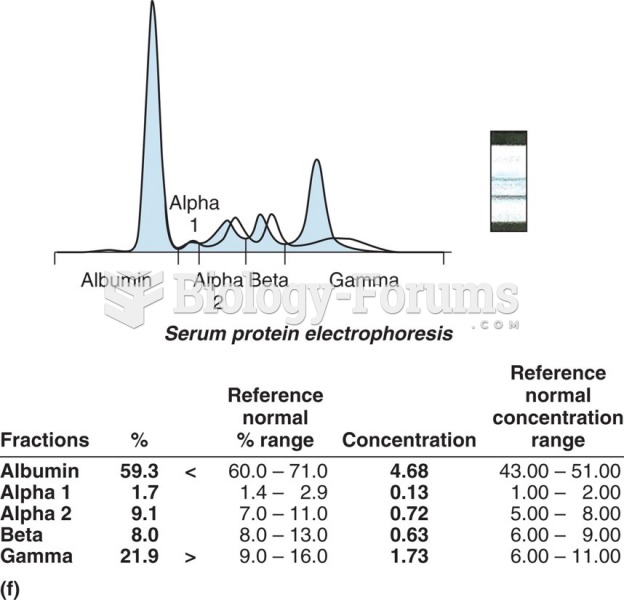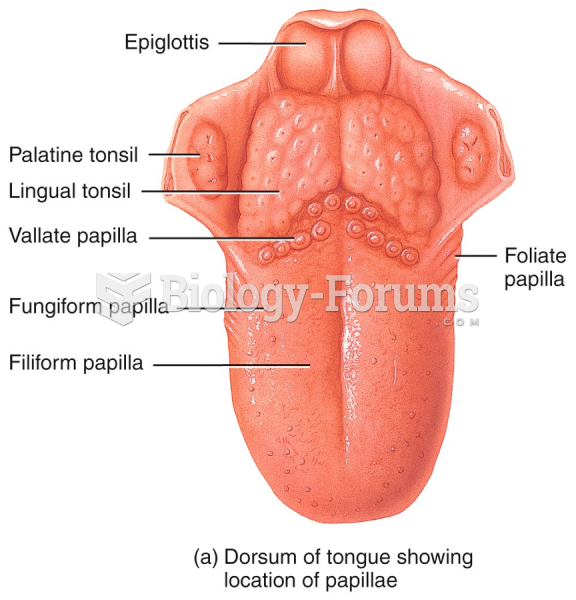|
|
|
Approximately 500,000 babies are born each year in the United States to teenage mothers.
The average human gut is home to perhaps 500 to 1,000 different species of bacteria.
The modern decimal position system was the invention of the Hindus (around 800 AD), involving the placing of numerals to indicate their value (units, tens, hundreds, and so on).
A cataract is a clouding of the eyes' natural lens. As we age, some clouding of the lens may occur. The first sign of a cataract is usually blurry vision. Although glasses and other visual aids may at first help a person with cataracts, surgery may become inevitable. Cataract surgery is very successful in restoring vision, and it is the most frequently performed surgery in the United States.
The first documented use of surgical anesthesia in the United States was in Connecticut in 1844.







